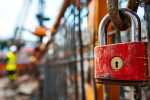10 Top Tools for A Gas Engineer’s Business Success

Plumbing and gas engineers often find themselves dealing with difficult jobs. Whether it’s a leak in an inaccessible area or a complex boiler repair, it’s fair to say that no two call-outs are the same. Having the right tools is key; whether you’re newly qualified or a skilled worker, maintaining your tool kit is the best way to ensure that each job is completed to the highest standard. It also helps to increase efficiency and speed when carrying out a repair, which is essential to the longevity of any gas engineer business.
1. A Full Allen Key Set
Allen keys are one of the most important tools a gas and heating engineer has. Hexagonal nuts tend to be very small and range from 1.5mm to 22mm. Having a range of them is key. Higher-quality Allen keys will be less prone to breakage and be able to turn difficult bolts more efficiently.
2. Job Management Software
It doesn’t matter whether you’re self-employed or working with a team because a gas engineer software is critical. Tracking things electronically makes dispatching engineers, scheduling appointments, issuing job sheets, and invoicing customers easier. As businesses grow, things like this will become more important, so having quality job management software is essential.
3. Blow Torch
A blow torch is a key tool for gas engineers. Gas leaks are common issues, and most of the time, they are due to a small crack or a space within a pipe fitting. Small gas leaks are also difficult to detect, but having a blow torch is the best way to find them. It’s like a litmus test and immediately indicates whether or not there is a gas leak.
4. Accounting Software
Without accounting software, tracking income and expenses can be challenging. This software allows you to track money electronically and makes filing tax returns much easier. It also highlights when certain customers have paid, eliminating the need to track bank balances when working across different jobs.
5. Electronic Gas Detector
Detecting the extent of a gas leak in many appliances is possible. A gas leak detector uses electromagnetic gas waves to determine the complexity of the repair. A good detector may even come with additional features for more comprehensive readings. High-end ones even come with multiple sensor slots, so up to six gases can be measured.
6. Gas Meter Box Key
Made of plastic, gas meter box keys assist in opening gas meters for repairs and maintenance. Although this is a simple tool, it is the key to doing jobs quickly and efficiently. Radiator keys can be used to release additional pressure within a boiler. They’re universal, too, so they can be used for everything.
7. Cordless Drill
Every engineer will have to drill something at some point. Being prepared is key. For those who want to carry a drill without hassle, having a cordless drill is vital, especially when accessing small crawl spaces. Finding a drill with a long battery life is a good idea, as sometimes jobs can take longer than expected, and having the drill die halfway through can be a huge detriment.
8. Leak Sealer
Another component of a successful engineer’s toolbox is a leak sealer. This is a useful paste that helps to stop leaks on joints, curves and difficult areas of a pipe. They can also be used on hot as well as cold pipes.
9. Inspection Camera
Plumbers and engineers often find themselves working with difficult pipe systems that are inaccessible. An inspection camera is a must-have tool. Don’t be tempted to buy a cheap one, as they may miss critical details when assessing a repair. An inspection camera can also be used to find the exact point of repair for a pipe, which is so important for working gas and plumbing engineers.
10. Mole Grips
Mole grips are otherwise known as locking pliers or vice grips. They are very useful when opening or tightening stubborn bolts. Mole grips can be used as a third hand when working on difficult jobs, and if working alone, they can be a game-changer.
So, those are the top tools needed to ensure the longevity of a gas engineer business. Some are physical tools, others are digital, but when combined they give new and established companies every chance of success. For those looking to take things to the next level, CRM software is a valuable investment. It allows engineers to monitor customer relations, so that negative experiences can be rectified, and positive experiences can be used in marketing campaigns.









